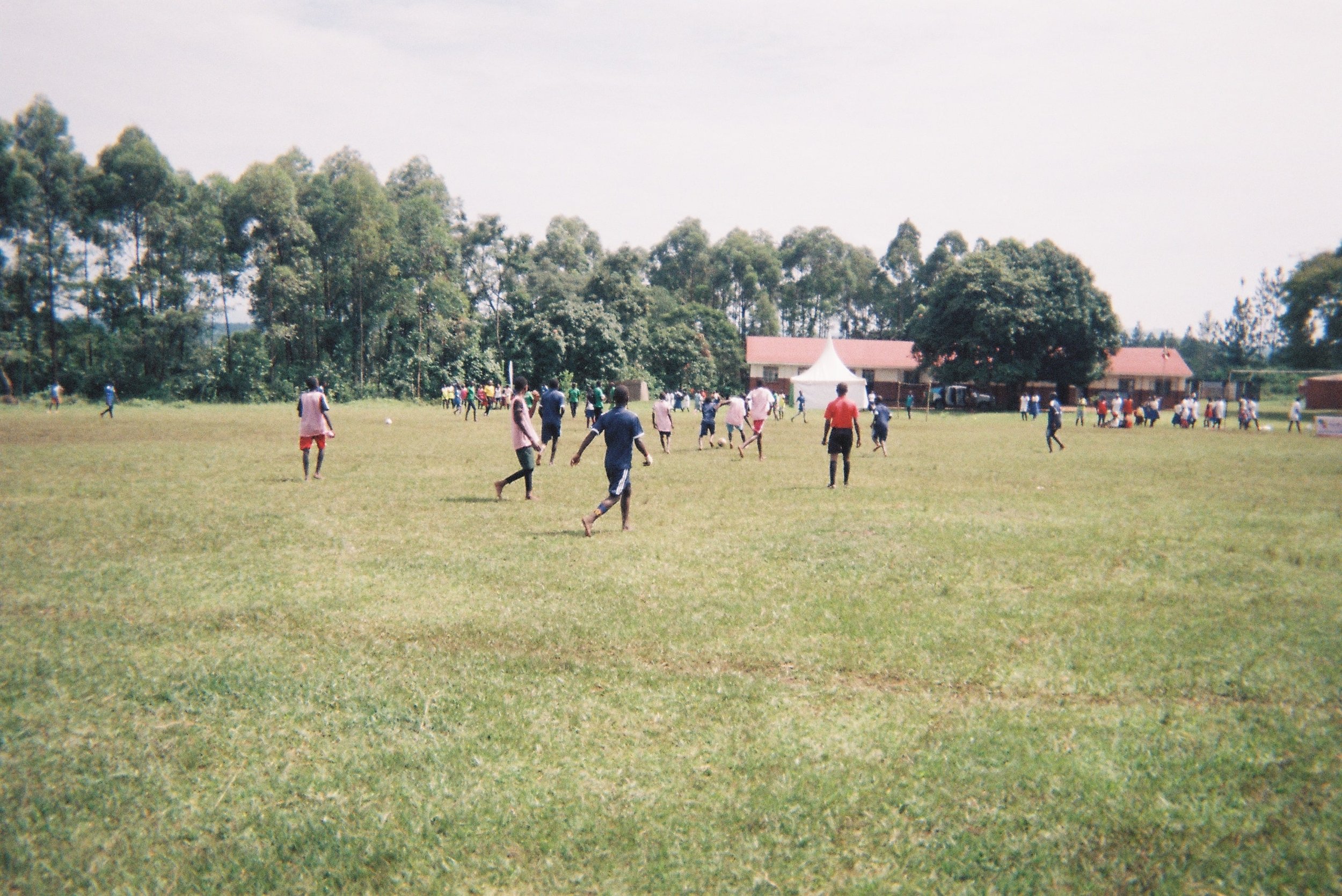Healthy Football Lives
Kajumba Eunice, Uganda
Kajumba Eunice is a coach for Hoima Network of Child Rights Clubs (HONECRIC) in Hoima, Uganda. HONECRIC is a partner of Tackle, an award-winning NGO using football to deliver Sexual and Reproductive Health and Rights (SRHR) information and services to young people on football pitches across Africa.
Tackle trains local HONECRIC coaches, staff, and community leaders with their methodology and provides support for the coaches to deliver sessions to players. Alongside receiving sexual health information during football sessions from their coach, players also have the chance to access free sexual health services at sessions and football tournaments.
My name is Kajumba Eunice. I am a coach for Hoima Network of Child Rights Clubs (HONECRIC), which has a partnership with Tackle. I became a football coach after being recruited by HONECRIC and trained by Tackle. Before I was trained as a coach, I never liked football and I did not know how to play. Since I was trained, I am able to coach and play.
What did you try to show with the photos? Was there any wider meaning with the photos?
The photos were taken at different occasions which include during coaching sessions, football tournaments, and coach training. The people in the photos are the coaches and players.
I was trying to show girls and women playing football which was not the case in the past. Girls used not to play football but now they are excelling at the sport.
I captured the Tackle tournament at Rumogi primary school, a community football tournament, boys and girls having fun during games time at Mpaija primary school, and coaching training at Duhaga boys primary school.
There was a match between Ibanda primary school and Hoima mixed primary school during a community football tournament. Before the community football tournament, a project staff member was briefing the players about the rules of the game and other regulations.
My favourite photos are where Rosemary from Sir Tito primary school made a good pass, which helped her team to score a goal during the tournament, and also when Coach Miriam made a good pass during coach training at Duhaga boys primary school. She was one of the best football coaches from the project cohort.
What role does football and Tackle play in your community and Ugandan society?
Football unites people to have fun and do physical exercise. It helps people to know their health status, especially during the Tackle football tournament where there is free testing for HIV, high blood pressure, and cervical cancer.
Tackle has created awareness on HIV and sexual health in the community through football coaching.
What opportunities are there for women in football in Uganda?
There are many opportunities for women which include exposure to the world through travel to different places, bursaries and scholarships, physical fitness, popularity, rewards for the best performances, income, and increased investment in women’s football.
What does football mean to you? What ambitions do you have for the future?
Football means a lot to me because it helps me to do physical exercise. My ambition is to continue creating HIV awareness in our community by using football methods to pass on the healthy sexual messages.
What is the future for football in Uganda?
Football as a sport is growing, with the players and coaches getting good training. The fans have also developed a positive attitude towards grassroots and local football. In our area they hugely support Kitara Football Club, which is a local club competing in the top league of the country. They also show the same support to other local clubs participating in lower leagues. During the school competitions the community members always come in big numbers to support.
Playing football has also become an avenue for generating income especially for professional players and young players have won scholarships due to possessing football talent.











